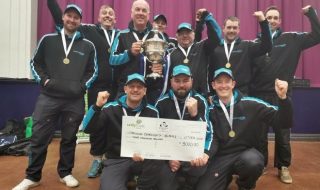Magistrates at Folkestone heard how 1.8 tonnes of diseased live fish were smuggled into the country by the two men late one night in April last year. The consignment of 262 large carp, was intercepted at the Channel Tunnel terminal at Longport by fish health inspectors from the Centre for Environment Fisheries and Aquaculture Science (CEFAS) assisted by HM Customs and Kent Police officers.
The fish, which had been purchased in
It was the largest ever seizure of illegally imported live fish and is the latest in a series of successful operations by fish health inspectors aimed at preventing the spread of fish disease caused by infected smuggled fish.
Tests carried out by scientists at the CEFAS laboratories in
It was the first time this particular strain of the SVC virus (previously found in
The court was told that if the fish had been introduced into our waters there could have been disastrous consequences for wild and commercial fish species.
Magistrates told the two men that the offences were so serious that they considered their powers to sentence them were insufficient. They therefore committed both men to Maidstone Crown Court for sentence.
This case was heard at Folkestone Magistrates Court on
The 262 carp weighed between 5 and 21 kilograms each. The total value of the consignment is estimated at approximately £85,000. A 21 kg fish in good condition would fetch approximately £5,000 on the retail market.
Live fish, including carp, may only be imported into Great Britain in accordance with requirements outlined in “A Guide to Importing Fish” available on the Defra website: http://www.defra.gov.uk/fish/fishfarm/index.htm.
An explanation of the controls on notifiable fish diseases in Great Britain such as SVC and advice on steps to prevent the spread of disease is set out in Defra’s booklet “Combating Fish Disease” http://www.defra.gov.uk/fish/fishfarm/index.htm






